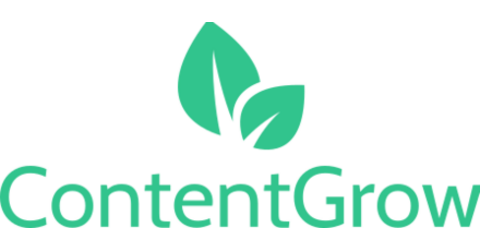What is MarTech and what can it mean for your business?
What is the meaning of martech and why should your business be concerned? We explore more in this article.

Is your team drowning in emails, lead lists, and campaign reports? If your marketing team spends hours updating contact lists, manually sending follow-ups, or struggling to measure campaign results across different platforms, it’s time for a change.
That change isn’t hiring more people or working longer hours—it’s working smarter. And that starts with the right MarTech stack.
A MarTech stack automates these tasks, giving your team more time to create better content, engage with customers, and drive real results. Marketing agencies and big companies rely on a range of MarTech tools to research, create, analyze, and track marketing performance from start to finish.
Top marketers consistently launch successful campaigns by streamlining processes and using the right tools to stay efficient. This guide will show you how.
This article is the first in the MarTech Stack series, designed to give you a clear picture of what a MarTech stack is and how it can help your team work smarter and more efficiently.
By the end of this series, you’ll know exactly what tools to use, how to integrate them seamlessly, and how to transform your marketing strategy without adding more work to your plate.
💡 Pressed for time? Here’s what matters:
- A MarTech stack is a collection of tools that help automate marketing, improve efficiency, and scale campaigns.
- AI-powered MarTech tools enhance automation, analytics, and personalization for better engagement.
- ChatGPT isn’t enough—a full MarTech stack ensures seamless integration across all marketing channels.
- Businesses that use AI-driven MarTech solutions see a 30% improvement in efficiency and higher conversion rates.
- Choosing the right MarTech stack means selecting tools that fit your business needs and scale as you grow.
What is a MarTech stack and why does it matter?
A MarTech stack is the collection of technologies marketers use to manage their campaigns. It simplifies marketing by automating tasks, improving workflows, and providing smarter insights to make better decisions.
Even with the rise of AI, these tools are becoming more advanced. A 2023 study found that 52% of U.S. marketers using AI tools reported improved workflow efficiency as the primary benefit.
Isn't ChatGPT enough to improve marketing?
AI tools like ChatGPT can enhance marketing efforts, but they aren’t a full replacement for a well-structured MarTech stack.
While ChatGPT helps with content creation, customer support automation, and idea generation, it lacks the ability to fully integrate with CRM systems, track analytics, manage multi-channel campaigns, or automate workflows efficiently.
AI-powered chat tools are great for specific tasks, but a complete MarTech stack ensures all marketing operations work together seamlessly, from lead generation to campaign execution.
How AI makes MarTech software better
AI is transforming MarTech by making software smarter, faster, and more efficient. AI-driven analytics tools help marketers make data-backed decisions by analyzing customer behavior and predicting trends.
AI-powered automation improves personalization, ensuring that businesses reach the right audience with the right message at the right time.
According to a 2023 report, businesses that integrate AI into their MarTech stack see an average of 30% improvement in campaign efficiency and higher conversion rates due to advanced audience segmentation and real-time adjustments.
Key components of a MarTech stack
A MarTech stack consists of several essential tools that work together to optimize marketing efforts.
- Customer Relationship Management (CRM) – Helps manage customer data and interactions.
- Content Management System (CMS) – Facilitates content creation and distribution.
- Marketing Automation – Automates repetitive tasks like email marketing and lead nurturing.
- Analytics and Data Management – Tracks and analyzes campaign performance.
- Social Media Management – Schedules posts and monitors engagement.
- Email Marketing – Optimizes email outreach and audience segmentation.
Not every business requires a full MarTech stack, but understanding the available tools can help you make informed decisions when your business is ready to scale. Each business should assess its specific needs and gradually integrate tools that align with its goals.
Start by identifying gaps in your marketing process. Choose tools that integrate well, support automation, and provide clear insights into your performance to ensure maximum efficiency.
How businesses implement their martech stacks
Consider how the airline Emirates offers better website experiences through upgrading their sites' UX/UI design.
The loading time of the brands' web page is critical for customer satisfaction, and Emirates decided to optimize their mobile website by diving into their martech stack, along with technologies and recommendations from Google.

The result is increased page load speeds, making the UAE airline's website one of the fastest loading websites in the airline industry. They also witnessed a 20% decrease in bounce rate and an increase in web user rating.
Another successful martech stack campaign is done by Kinder thru Augmented Reality. Kinder's did an in-store AR marketing campaign with a 3D jump-in safari and took social media by storm. It took the retail experience to the next level by installing the kinder eggs in the middle of the US supermarket alleys and luring its consumers as they scanned the QR code.
The 3D augmented reality experiences offered a real-time safari experience with high-quality graphics and acted as a portal that blurs the lines between dreams and reality.
Types of MarTech tools
Understanding the key components of a MarTech stack can help businesses build an effective marketing strategy:
- Email marketing and remarketing
Despite the rise of social media, email marketing remains a cornerstone of digital marketing. Tools like Mailchimp and HubSpot enable businesses to send targeted messages and nurture leads. - Social media management
Platforms like Hootsuite and Sprout Social help businesses schedule posts, track engagement, and analyze audience interactions. - Marketing automation
Automation tools streamline marketing tasks, such as customer segmentation, personalized messaging, and campaign tracking. Examples include Marketo and ActiveCampaign. - Web analytics tools
Google Analytics and Adobe Analytics provide insights into user behavior, helping marketers optimize their digital strategies. - Customer Relationship Management (CRM)
CRM platforms like Salesforce and HubSpot centralized customer data, improving relationship management and sales tracking. - Content Delivery Network (CDN)
CDNs, such as Cloudflare and Akamai, ensure fast and reliable content delivery by optimizing website performance. - On-site engagement and personalization
Tools like Claspo help businesses enhance user experience with subscription forms, surveys and other interactive popups, increasing conversions and engagement. With Claspo templates, marketers can quickly create and customize popups to match their brand and audience needs.
How do I build the right MarTech stack for my business?
To maximize the benefits of MarTech, businesses should:
- Assess their needs – Identify gaps in their marketing process.
- Choose the right tools – Select solutions that align with their objectives.
- Integrate seamlessly – Ensure all tools work together for data consistency.
- Train teams – Educate employees on how to leverage MarTech effectively.
- Monitor and optimize – Regularly analyze performance and adjust strategies accordingly.
Start by identifying your marketing needs. Choose tools that integrate well, support automation, and provide clear insights into your performance. MarTech continues to evolve, shaping the future of digital marketing.
Businesses that strategically implement these tools can gain a competitive edge, improve customer engagement, and drive higher ROI.
FAQs
What does MarTech mean?
MarTech refers to marketing technology, which includes tools and software that help businesses optimize marketing efforts.
What is a MarTech tool?
A MarTech tool is any software used to improve, automate, or analyze marketing activities.
What is an example of MarTech?
Examples include email marketing platforms, CRM systems, and web analytics tools like Google Analytics.
Is CRM part of MarTech?
Yes, CRM is a crucial component of a MarTech stack, helping businesses manage customer interactions.
Is Google Analytics a MarTech tool?
Yes, Google Analytics is a widely used MarTech tool for tracking website traffic and user behavior.
Is Canva a MarTech tool?
Yes, Canva is a MarTech tool that assists in creating marketing visuals and graphics.
What should be included in a MarTech stack?
A good MarTech stack includes tools for CRM, email marketing, social media management, analytics, and automation.
How do I choose the right MarTech tool?
Assess your business needs, compare features, and ensure compatibility with your existing marketing tools.
What are the benefits of using a MarTech stack?
A MarTech stack helps streamline marketing efforts, improve customer engagement, and provide better data insights.
How can businesses integrate MarTech tools?
Using APIs, automation platforms, and cloud-based solutions can help connect different tools within a MarTech stack.



